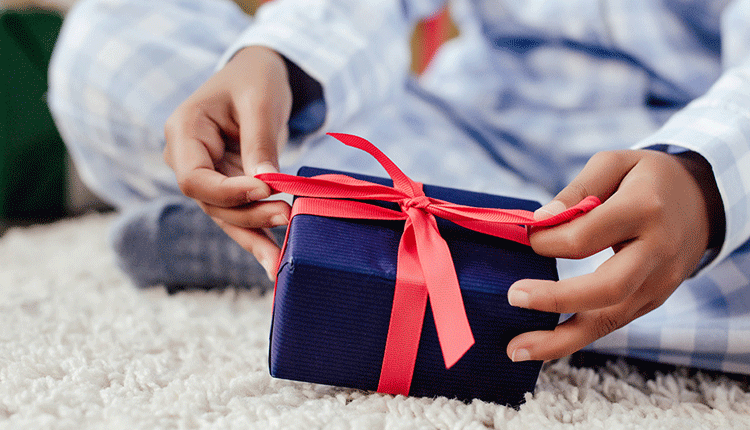Should parents give extravagant gifts to children

Recently, a business woman, stunned netizens when she bought a mansion for her son on his sixth birthday.
She argued that her son always desired to live in a luxurious house and more so, becoming a home owner one day.
She said she would go at any lengths to ensure that her children live comfortable lives including purchasing expensive gifts.
Whether she was chasing clout or not, her post elicited a lot of reactions.
However, of late, more and more parents are taking to social media to display their lavish gifts to their children.
From lavish cars, to houses and businesses, parents have gone out of their way just to show how much they are capable of gifting.
But according to Dr Lucy Maina a sociologist, one should consider the age of a child when gifting.
Unless you want to own the ‘gift’ until a child becomes of age, one cannot consider a house to be a gift for a six-year-old.
A bicycle would be more appropriate. “Allow children to own only what matches their sense of responsibility and at the appropriate age, but not in excess,” she shares.
Lucy says there are a number of reasons parents opt to go on a long stretch to please their children with the extravagant gifts.
“For some, they just desire pampering their children and watching the joyful little ones as they receive the gifts.
It can also be the desire for some parents to give children a life they themselves didn’t have,” she observes.
Lucy adds that others take it as an opportunity to show off their material wealth.
“Materials are used to compensate for lack of parenting time. For a few, they are giving their children a “taste” of what good life is like,” she continues.
However, Lucy shares that such actions may have a huge consequence to the child, who gains a sense of entitlement.
“They will act as if the world owes them. They begin to have wrong the concept of material wealth — like it’s all you need.
Pride builds up in them leading to undermining those who don’t own such. In addition, they develop a sense of self gratification where they want things there and then,”she says.
Such behaviour, she says, will make the child not appreciate the road that gets people to own such possessions.
“The child may look down on hard work. They may become show-offs and engage in wrong company,” she adds.
Lucy feels that such actions reflect a society that is extravagant and wasteful, does not inculcate values such as hard work, is not concerned about the underprivileged, corrupt and are not good stewards or custodians.
“In responsible cultures, children learn to respect all and their properties are in hands of trustees or guardians.
They learn to be proud of their own achievements not those of their parents,” she explains
Dr Anthony Ireri, lecturer, and personality assessment expert, Kenyatta University, Department of Educational Psychology concurs.
“We may be defining success in life including in parenting in terms of material possessions more than through other parameters,” he notes.
Ireri shares how social comparison has been on the rise, especially with advancement in technology.
“The availability of social media platforms that help parents to share their gifting moments may make many to focus on the price of the gifts more than on the act itself.
Consequently, the new generation of parents may be using gifting more to validate their socioeconomic status, and to keep up with whatever practices that seem to be trending,” he notes.
Still, Ireri believes that there are many reasons for such gifting. “There are those who may feel that the more expensive a gift is, the better it is.
Others may buy such gifts to meet the demands of their children. Other parents may buy gifts to make up for their own guilt, especially when they feel they don’t have time for the children,” he says.
Adverse effects
He says that generally every gift has a positive effect. “Gifts makes the giver and the receiver feel good and appreciated.
Parents often use gifts to reward children’s good behaviour or achievements.
They also communicate love and enhance bonding between parents and their children,” Ireri says.
However, buying children expensive gifts may come with several adverse effects. “Such children may become famous and the envy of their peers.
This popularity in itself may condition such children to define themselves in terms of what they possess instead of who they really are.
The children may grow up equating expensive gifts with love, appreciation, and success.
It is not surprising that an expensive gift often triggers hunger for more expensive ones.
Such children are likely to transition into adulthood equating expensive possessions to happiness and self-worth.
They may perceive people without expensive possessions as unworthy and inferior,” he shares.
There is also evidence that materialism increases proneness to financial stress, compulsive spending habits, gambling, problematic debt, and difficulties in interpersonal relationships.
Pilie Ndiangui, a child psychologist notes that such children have a higher risk of aggressive behaviour, especially when parents can no longer afford to keep up the expensive trend leading to a sprained relationship.
“The end result is that parents have to buy what they cannot afford to buy for peace.
Children’s self-esteem is eroded for fear of being judged negatively by their peers” she notes.
Lucy recommends that parents instil the value of hardwork to their children. “Let them know you can’t have it immediately and delay gratification.
Also, allow your children to appreciate there are different social classes, but all are equal as humans,” she advises.
Lucy further shares that parents should give only what the children need.
On his part, Ireri advises parents to give gifts that children can learn lessons from.
“What is the gift communicating to the child? Is it responsibility? Is it about fame? Is it generosity? Is it love? Is it about connecting with others?” he poses.
Parents should also train children to appreciate the act of giving and not the monetary value of the gift.
“This will help them find happiness in generosity and acts of kindness. We should also encourage children to value gifts that trigger more memories of love, happiness, togetherness, and interconnectedness rather than focusing on the pricey ones.
Encouraging children to value their abilities, values, and potentials and to appreciate the lesser fortunate may help them to derive happiness from less materialistic gifts,” he says in conclusion.















